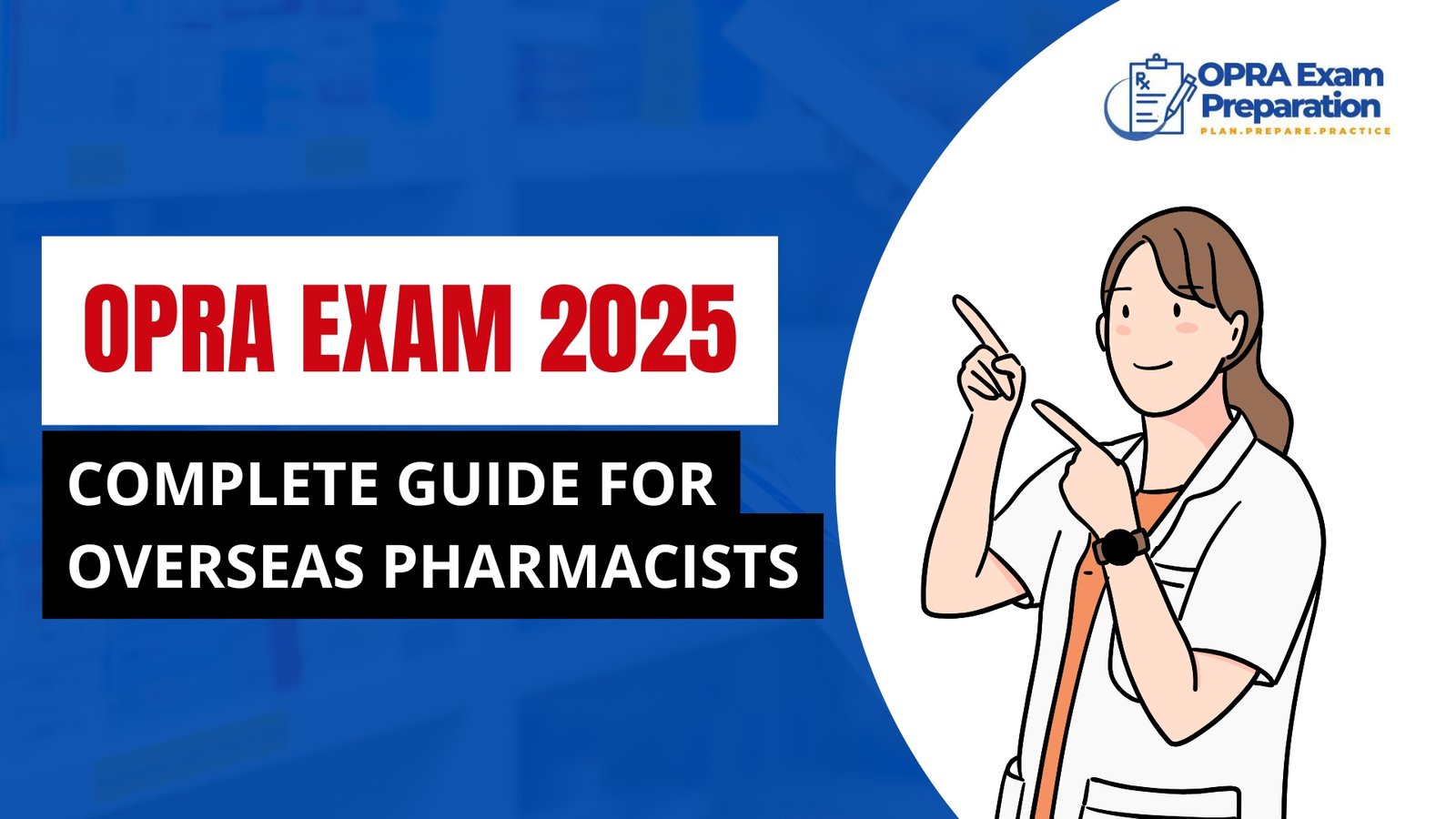The Overseas Pharmacist Readiness Assessment (OPRA™) exam is a vital step for internationally qualified pharmacists who want to register and practice in Australia. This exam thoroughly assesses your readiness by covering a broad range of pharmacy knowledge required for safe and effective practice in Australia and New Zealand. This guide provides everything you need to know to prepare effectively for the OPRA exam in 2025.
OPRA Exam March 2025: What Overseas Pharmacists Must Know
For pharmacists aiming to register with the Pharmacy Board of Australia, passing the OPRA exam is a critical milestone. The exam evaluates your proficiency across key pharmacy topics to ensure you can deliver high-quality healthcare in the Australian setting.
Overview of the OPRA Exam
- Duration: 2.5 hours
- Format: 120 multiple-choice questions
- Scoring: Utilizes the Rasch method; 90% of questions are scored, 10% unscored; no fixed pass mark
OPRA Exam Content Breakdown
Step 1: Understand the Exam Domains
The OPRA exam covers multiple core areas essential for pharmacy practice:
1. Biomedical Sciences (20%)
This section tests your understanding of normal and abnormal body functions, including:
- Physiology of body systems (cardiovascular, respiratory, endocrine, etc.)
- Pathophysiology: effects of viruses, genetics, and environment on health
- Medical microbiology and immunology
- Electrolyte imbalances and diagnostic procedures
Study Tip: Focus on the fundamentals of anatomy and physiology. Use immunology and microbiology resources to grasp disease mechanisms.
2. Biopharmaceutics and Medicinal Chemistry (10%)
Assesses knowledge of drug properties and delivery systems:
- Physicochemical factors affecting absorption, distribution, metabolism, and excretion (ADME)
- Drug formulations (oral, transdermal, pulmonary, etc.)
- Sterilization and preservation methods
Study Tip: Review drug-receptor interactions and pharmaceutical formulation techniques.
3. Pharmacodynamics and Pharmacokinetics (10%)
Covers how drugs act and move within the body:
- Drug metabolism and biotransformation
- Pharmacokinetic principles: clearance, bioavailability, steady-state
- Impact of diseases on drug absorption and metabolism
- Individualizing therapy using pharmacokinetic data
Study Tip: Practice pharmacokinetic calculations and study drug concentration-time curves.
4. Toxicology and Pharmacology (15%)
Focuses on drug effects and toxicity:
- Mechanisms of drug action and dose-response relationships
- Adverse drug reactions (ADRs) and drug interactions
- Management of overdoses and toxic exposures
Study Tip: Review key pharmacological classes and strategies for managing ADRs.
5. Patient Care and Therapeutics (45%)
The largest and most critical section, emphasizing clinical application:
- Dosage calculations and patient-specific considerations
- Primary care treatment choices (pharmacological and non-pharmacological)
- Special populations: pregnancy, breastfeeding, geriatrics, pediatrics
- Techniques for improving medication adherence and harm reduction
- Health promotion and disease prevention
Study Tip: Use case studies to practice applying therapeutic knowledge. Familiarize yourself with clinical guidelines for special populations.
Step 2: Plan Your Study Schedule
Allocate your study time based on domain weight:
- Focus heavily on Patient Care & Therapeutics (45%) and Biomedical Sciences (20%).
- Use targeted study resources for Pharmacokinetics and Medicinal Chemistry (10% each).
- Incorporate regular revision and self-assessment.
Step 3: Practice with Mock Exams
Simulate exam conditions by answering multiple-choice questions from each domain. This helps to:
- Identify knowledge gaps
- Improve time management and exam strategy
Additional Tips for Success
- Stay Updated: Follow the Australian Pharmacy Council (APC) for the latest exam updates.
- Use Visual Aids: Diagrams and flowcharts simplify complex concepts.
- Join Study Groups: Collaborate with peers to share resources and insights.
- Maintain Balance: Prioritize good sleep and a healthy study routine to stay focused.
Final Thoughts
The OPRA exam syllabus is broad and can feel overwhelming, especially for self-study candidates. Many wonder:
- Where should I begin?
- Which topics deserve more focus?
- What are the best reference books?
- Where can I find reliable mock tests?
- How do I stick to my study plan?
At Elite Expertise, we provide clear answers to all these questions. Our experienced mentors, Mr. Arief Mohammad and Mrs. Harika Bheemavarapu, offer comprehensive training designed to help you pass the OPRA exam on your very first attempt. Our 3.5-month course covers everything, from document evaluation and OPRA exam preparation to the Australian Intern Written and Oral exams, guiding you step-by-step toward becoming a registered pharmacist in Australia.

